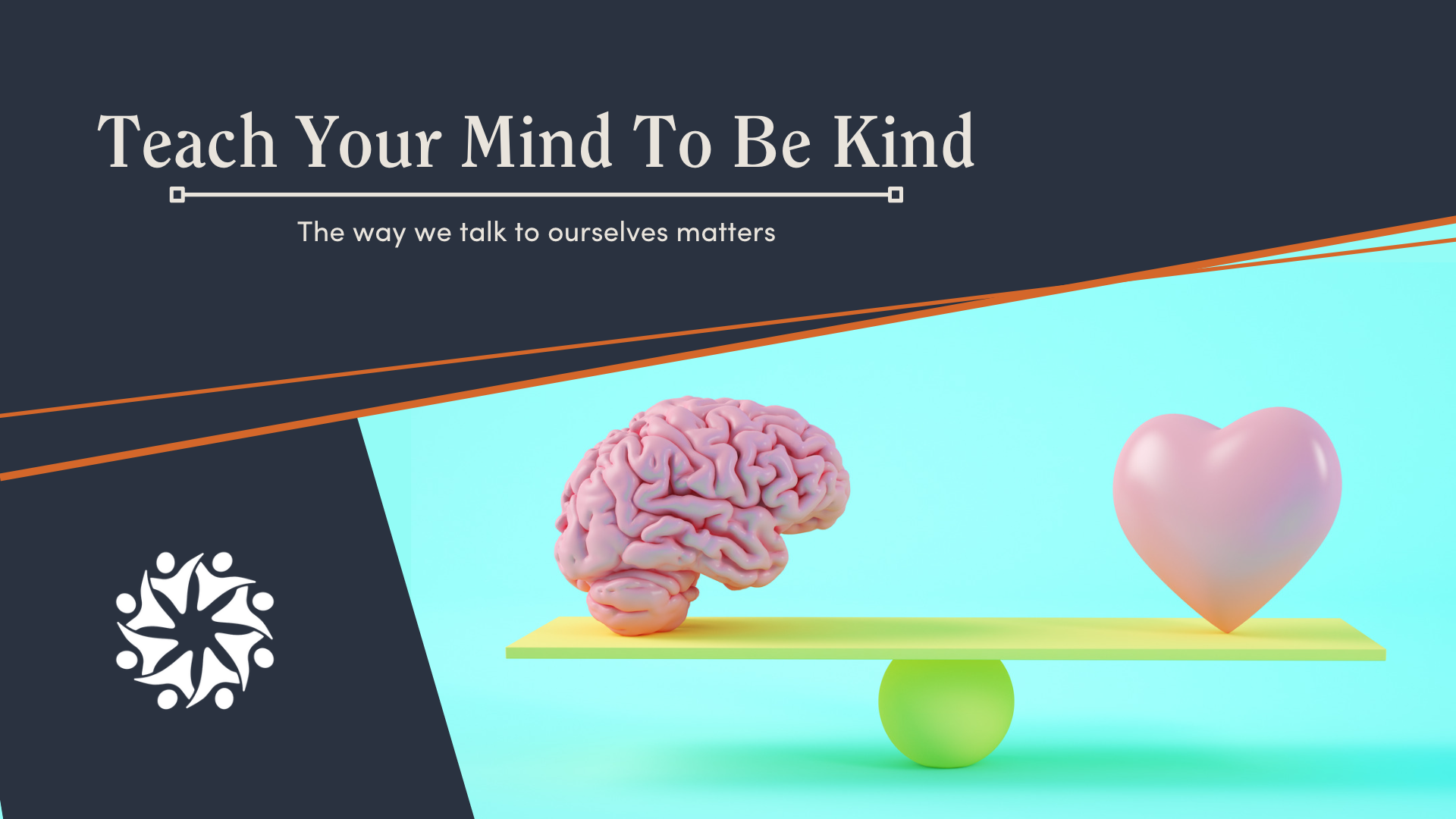Teach Your Mind To Be Kind
If someone asked you to explain the difference between self-compassion and self-care, what would you say?
Do you think they're the same? Different? No idea?
Well, whatever you think about the two, we are going to break it down today.
What is self-care?
According to an article from The New Social Worker:
Self-care is essentially the actions and approaches that embody being kind and considerate to oneself.
Put simply, self-care is all about the things we actually do for ourselves. We are making a physical effort to be nice to ourselves—usually to allow our body to relax or relieve stress and anxiety from our mind to maintain a healthy life balance.
Here are a few examples of self-care:
Exercise
Socializing
Working on a favorite hobby
Reading for fun
Going to therapy
What is self-compassion?
We're going to go back to our friends at The New Social Worker to learn about self-compassion:
Self-compassion is generally defined as having an attitude of kindness and consideration toward oneself.
It kind of sounds a lot like what we just learned about self-care. In fact, if you weren't paying attention, you might even think they just said the same thing twice.
But, if you take a second look, you'll see that where self-care is all about physical acts of kindness toward yourself, self-compassion is focused on your attitude. Self-compassion is all about our thoughts and what we say to ourselves in the privacy of our own mind.
I can already hear some of your saying, "But Nikki, you mentioned our minds when you talked about self-care too!" You're right—I did. However, self-care is more about dealing with the stressors we usually experience from outside sources like work, family, or other things around us. On the other hand, self-compassion is all about what we say to ourselves in our mind—no outside parties are required for this mental health activity.
Why do we need to know the difference?
That's a great question—I'm so glad you asked!
I feel like I see a lot of effort in the ADHD and mental health communities to spread awareness and explain the importance of self-care. While I believe this is a great goal and it should continued to be shouted from the mountaintops, self-compassion is just as important of an issue and a key component to working toward any mental health goal.
Picture this...
Here's a quick example of what I mean:
You have been told by everyone and everything you see around you that you should be focusing on self-care. So, you decide to dedicate your mornings to a new yoga routine and set aside some time each evening to connect with your family and then have some ‘Me Time’ to catch up on the latest novel by your favorite author.
At first, you can actually feel an improvement in your mood; the tension you normally feel is starting to subside. Then, the next day you sleep through your alarm and don't have time for yoga.
“I can't believe I slept through my alarm! Well, I just ruined my good mood for the rest of the day....great job”, you sarcastically think to yourself as you hurry to get to work.
Then, on your commute, you accidentally spill your coffee on your clothes.
Not again! This always happens to me! I look like a slob!
At work, you're so focused on the coffee spill and fear everyone is judging you, you don't hear a word that was said during your morning meeting.
Why can't I remember anything from the meeting?! I was just there! I hate my brain!
By the end of the day, all the work you have been putting in to be kind to your mind through self-care seems to have been undone by a lack of self-compassion.
Does any of that sound familiar?
It might. A lot of ADHDers seem to have a hard time showing themselves a little compassion and kindness. They see to hold themselves to a much higher—sometimes unrealistic— standard, beating themselves up internally when they aren't able to meet such crazy expectations.
As you may have been able to see through the example earlier, it doesn't have to take much to derail your day if you don't internally practice self-compassion.
I would like to challenge you take some time to evaluate the things you say to yourself. Write them down. Once you have a list, go back through each thing you wrote and figure out how you can turn that negative thought or limiting belief into a kinder act of self-compassion.
Once you have that new list, throw away the first list and begin to practice using these new, positive phrases instead.
Thank you for your time and attention,
Nikki

